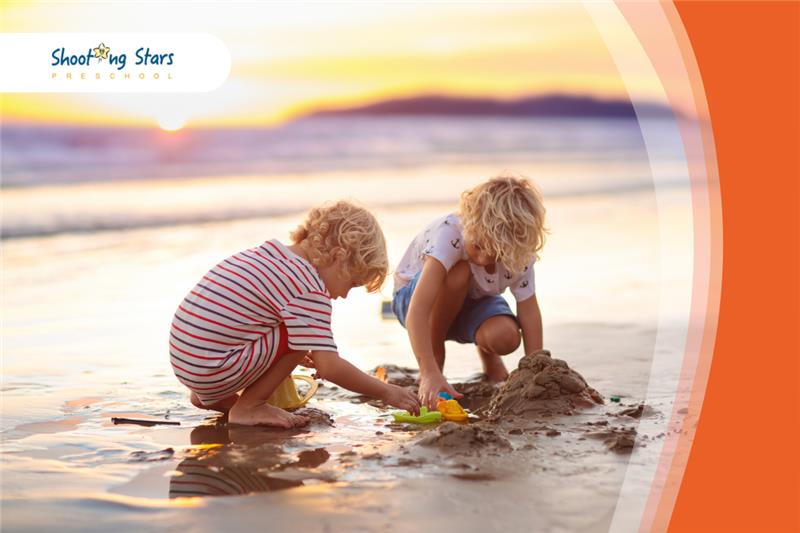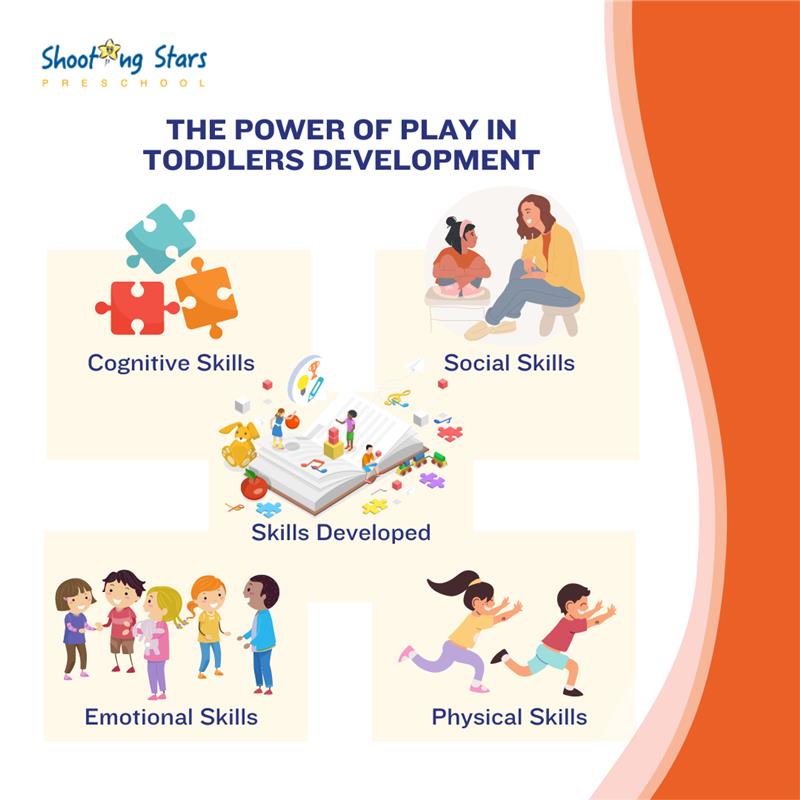|
Adapting to changes, building new skills, and becoming sporty are reflections of the power of Play in preschoolers. Keep reading to understand the impact of play in early childhood.
Play is not just about fun and games for young children; it is a powerful tool for developing essential skills that pave the way for healthy growth and academic achievements. From language and literacy skills to social-emotional development, the perks of Play are undeniable. Incorporating Play and physical activities is critical for the overall development of a child's mental, physical, and emotional growth. Play is inherently linked to cognitive development, as it provides children with opportunities to explore, experiment, and problem-solve in a hands-on manner. Through Play, children engage in activities that stimulate their curiosity, critical thinking, and creativity.
This blog will delve into the depths of the advantages of Play, how early childhood development in kindergarten children can lead to healthy adulthood, and much more. Keep reading to explore, friend!
Key Takeaways
Children Learn By Playing
Play is a powerful tool for overall mental and physical developmental milestones for all age groups. It produces happy hormones called endorphins that contribute to overall well-being while reducing stress, alleviating pain, and enhancing mood.
Developing the habit of Play in children from early stages contributes to their healthy development. It builds spontaneity and problem-solving skills that could lead to academic success. During early childhood, language skills blossom as they learn to communicate with their peers and caregivers. Imaginative Play and storytelling allow preschoolers to grasp the diversity and complexities of language and construct the building box of communication.
The Power Of Play In Toddlers Development
Play is not just about language skills; it is a multifaceted tool that plays a critical role in every aspect of development, ranging from early math skills grasped through counting toys to the cultivation of social skills through cooperative Play and negotiation rules in board games, Play covers a wide spectrum of learning opportunities. Additionally, physical Play enables children to learn gross motor skills while caring for relationships and fostering emotional growth through social interaction during playtime.
The power of Play in child development cannot be overstated. Play enhances cognitive and social-emotional development to physical skills, providing a holistic framework for toddlers to grow, learn, and thrive. As children engage in play-based activities, they are not only having fun but also building essential skills that will contribute to their well-being throughout their lives.
Early Literacy Development And Play
Play reigns supremacy in the realm of literacy development. Children are exposed to new words, concepts, and scenarios and widen their vocabulary skills and comprehension when exposed to imaginative Play. The early exposure lays a foundation for extraordinary academic skills and success and instills a lifelong habit of reading and learning.
Children develop print awareness, basic conventions, and understanding of written language by playing with books. They understand that print carries meaning, and text is read from left to right and top to bottom, and letters represent sounds. Simple activities such as pretending to read mimic the behavior of literacy and reinforce the importance and relevance of written language.
Play is not just child play; it's a powerful tool for early literacy development. By immersing themselves in language-rich environments, engaging in imaginative Play, and exploring the world of books and stories, preschoolers lay the groundwork for success in reading and writing.
The Role of Play In Emotional Learning
Play serves as a medium for social-emotional learning, teaching children important skills like self-control, empathy, and cooperation. Preschoolers learn social dynamics and emotional management and build social resilience to face challenges through solitary Play and group activities. These social-emotional skills are invaluable not just in the classroom but also in every aspect of life that contributes to positive relationships and healthy development.
Children's Play provides opportunities for deep connections and meaningful interactions between children and caregivers. When educators are involved in Play with children, they can learn by asking open-ended questions, modeling language, and rich vocabulary. These interactions strengthen the relationship between child and adult while enriching the vocabulary and literacy development.
From Cardboard Boxes To Shape Sorters: The Tools Of Play
Simplicity reflects the beauty of Play. Children can find ecstasy and joy in the most ordinary of objects, from cardboard boxes that are built to spaceships or forts that challenge their spatial skills and problem-solving abilities. The act of playing with soft toys can improve creativity, exploration, and curiosity, which are essential components of healthy child development. Toddlers learn from playing with safe objects and tend to develop creativity and enthusiasm for Play.
Cardboard boxes are one of the most versatile and underrated play materials. What might seem like a simple container to adults becomes a world of endless possibilities for young children. Whether it's a spaceship, a castle, a car, or a secret hideout, cardboard boxes ignite children's imaginations and creativity.
Shape sorters are classic toys that provide valuable learning opportunities for young children. These toys typically consist of a container with various cut-out shapes and corresponding holes. As children manipulate the shapes and attempt to fit them into the correct slots, they develop important cognitive skills such as shape recognition, spatial awareness, and problem-solving.
These materials provide children with rich learning opportunities across cognitive, physical, social, and emotional domains. By embracing open-ended Play and providing children with a diverse array of play materials, caregivers and educators can support children's holistic growth and development. Whether building castles out of cardboard or sorting shapes into their respective slots, every play experience is an opportunity for children to learn, explore, and thrive.
Conclusion
The power of Play in building essential skills in preschoolers cannot be underestimated. From language and literacy development to social-emotional learning and beyond, Play serves as a cornerstone of early childhood education. By embracing the innate desire to play and providing opportunities for free, unstructured Play, caregivers and educators can empower children to learn, grow, and thrive. As we witness the magic of Play unfold in the lives of young children, we are reminded of its enduring importance in shaping the future generation.
Preschool in Dublin offers wide variety of activities and set of rules for preschoolers that will enhance their literacy skills, helping them in nurturing relationships, improve problem-solving skills, and many more!.
Frequently Asked Questions
What are few important skills to be developed by preschoolers?
Some important skills such as recognition of upper and lower case letters, sorting objects by shape, size, and colors, counting numbers, ability to write and spell their name, understanding sequence are taught to preschoolers by the end.
What are other extra skills taught to preschool children?
Kindergarten children learn to ride a tricycle, sing, dress and undress, differentiate gender, use a safety scissors, etc.
What are few early literacy predictors for school readiness?
Phonological awareness, instant naming of objects, colors, letters, and numbers, knowledge on alphabets, writing and phonological memory are few early literacy predictors for school readiness.
0 Comments
Leave a Reply. |



